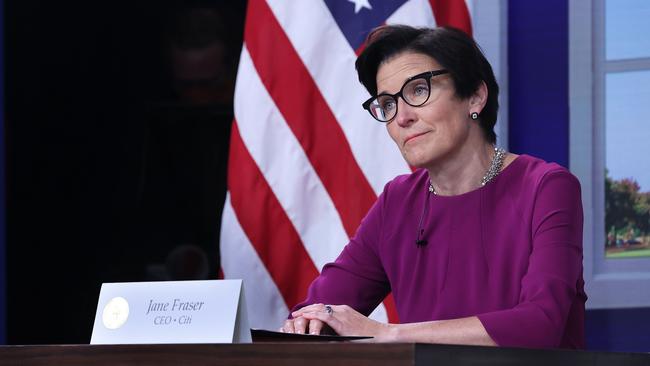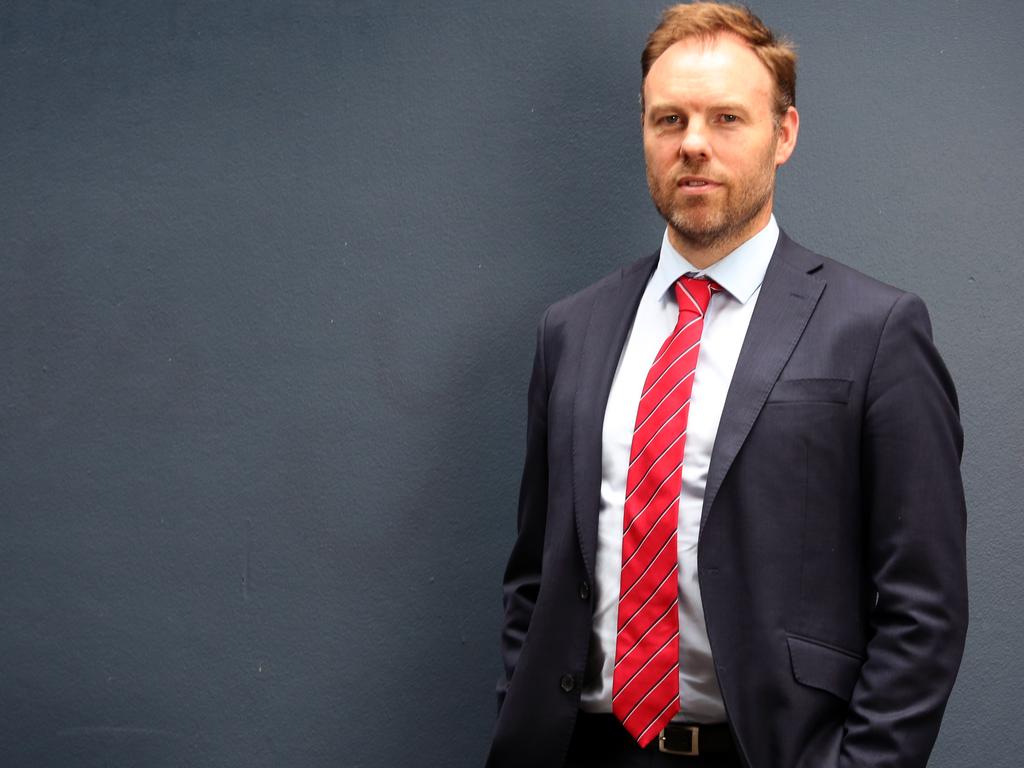Labour pinch hitting US recovery as Covid prompts work rethink: Citi boss Jane Fraser
Many people were dropping out of the workforce following the disruption from the pandemic, according to Citi global boss Jane Fraser.

Labour shortages are impacting big US firms as people start returning to work, Citi chief executive Jane Fraser told the Citi Australian & New Zealand Conference on Wednesday.
Ms Fraser, who took over as chief executive of the global bank in March, said there was a new phenomenon of people returning to work, including on Wall Street, after being at home to due to Covid, and then resigning as they rethought their lives.
She said other people were coming back to work but insisting on a more flexible working life.
“The labour market and labour shortages have replaced returning to work as the conversation starter for everyone,” she said.
“Before, the talk was all about what are you doing about Covid. Right now, in the US, it is about labour shortages.
“When the economy started to open up and people have had to return to the office, some were saying they don’t want to go back to groundhog day.
“They are saying they want a change and more flexibility. It is causing real problems on the attrition front.”
Ms Fraser said there were seven million people unemployed in the US and there were 11-12 million job vacancies.
She said labour shortages were pushing up wage levels with a base wage of $US15 an hour going up to $US20 an hour – “$US20 has become the new $US15.”
There were labour shortages evident in restaurants, logistics, and with the tech companies. “It is having a spill over for all of us.”
This was coming through in areas like call centres and service centres.
“A lot of people just don’t want to go back to work the way they were before.”
Some people’s net worth had increased during Covid because of assistance packages and Ms Fraser said many people did not feel the need to rush back to work.
“There are plenty of jobs available. There isn’t that feeling that they have to grab one because it might go. The bargaining power is with labour.”
Labour shortages were coming on top of shortages of materials as a result of widespread supply chain disruptions.
She said one executive was calling the trend “the great resign” as people returned to work and then quit.
“They are demanding more flexibility but it is also causing more problems with attrition.”
Ms Fraser said Citi had been recalling its US workforce to the office from September when the schools reopened.
The bank now had about 40 per cent of its head office workforce in the office “on any one day”.
“Most of the traders are back and happy to be back. There is such an energy and buzz about the place.”
She said there was a “feeling of vitality” in Manhattan again with restaurants and theatres open and people coming back to offices.
Ms Fraser said there was a strong demand from clients wanting to do deals and make investments.
“There is an incredibly strong pipeline,” she said. “Our corporate clients are investing in mergers and acquisitions, capital expenditure and (corporate) transformation and a small amount of debt repayment.
“The liquidity is being put to work against the real economy. We have got of lots of strong balance sheets around the world.”
She said three were major flows of liquidity in the world economy at the moment.
“We are seeing a tremendous amount of flows – foreign exchange, cash management and trade.
“While some of the corridors for those flows are changing, we’re seeing tremendous growth in them. A lot of these flows are in hyperdrive at the moment.”
She said she would not be surprised if Citi’s daily cash flows of $US4 trillion ($5.4 trillion) a day doubled over the next few years.
She said she was worried that there might be too much liquidity in the world economy.
“I worry that with the amount of liquidity that is out there, maybe there may be a bit of a hangover after this party.”







